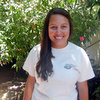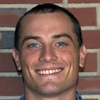Faculty

My primary research is on coral reefs from shallow waters to the deep sea. My focus is on understanding their distribution, abundance, and physiology, as well as how they are affected by anthropogenic impacts.
- Marine Lab Home Page
- sbrooke@fsu.edu
- Can mentor graduate students in the Dept. of Biological Science.
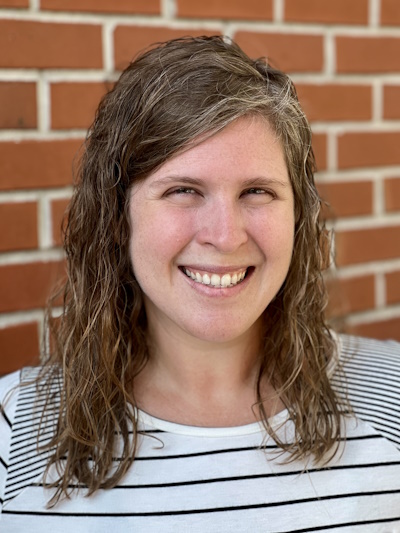
Elizabeth Brown
Room: 3062
King Life Sciences
Mailcode: 4295
All animals, including humans, need to sleep and eat. Being able to do so is critical for survival. What are the genetic and neural mechanisms that underlie these behaviors and how do they change with age? Our lab investigates these questions using the fruit fly, Drosophila. We use multiple approaches to address this question, including genetic screening, behavioral analysis, genomics, and brain imaging techniques with the goal of uncovering fundamental principles that regulate behavior.
- Phone: 850 644-5037
- EBBrown@fsu.edu
- Can mentor graduate students in the Dept. of Biological Science.
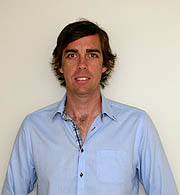
Scott Burgess
Room: 4021
King Life Sciences
I study the population biology of coastal marine species. One focus is on the evolution of dispersal, mating systems, and life histories. Another focus is on the ecology and evolution of cryptic species of corals in the genus Pocillopora. We typically use some combination of field and laboratory experiments, population, quantitative, and molecular genetics, and mathematical modeling/theory.
- Laboratory Home Page
- Phone: (850) 645-9563
- sburgess@bio.fsu.edu
- Can mentor graduate students in the Dept. of Biological Science.
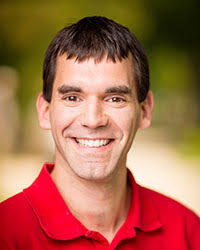
I am interested in how ecological, evolutionary, and epidemiological processes interact to drive population-level dynamics. My research program involves the development and use mathematical models to understand how species interactions and variation in species traits (due to evolution or phenotypic plasticity) affect the dynamics of predator-prey, host-pathogen, and other communities.
- Cortez Lab Page
- Phone: (850) 645-8692
- mcortez@fsu.edu
- Can mentor graduate students in the Dept. of Biological Science.
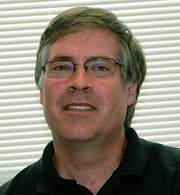
Geographic variation in sexual selection.
- Phone: (850) 645-8813
- dixon@bio.fsu.edu
- Cannot mentor graduate students in the Dept. of Biological Science.
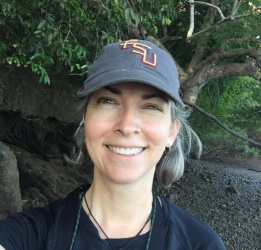
My lab group investigates the social behavior of wild birds. We study how social groups form, the selective forces that influence cooperation, and the fitness effects of complex behaviors. Our work analyzes detailed long-term field data on behavior and genetic reproductive success, using statistical models to quantify within- and between-individual effects. Major study systems include Lance-tailed Manakins in Panama and Brown-headed Nuthatches in the Tallahassee area.
- Laboratory Home Page
- Phone: (850) 644-2467
- ehduval@bio.fsu.edu
- Can mentor graduate students in the Dept. of Biological Science.

Gregory M. Erickson
Professor of Anatomy and Vertebrate Paleobiology
Curator, Florida State University Biological Science Museum
Room: 4011
King Life Sciences
Evolutionary morphology of vertebrates and paleobiology.
- Phone: (850) 645-4991
- gerickson@bio.fsu.edu
- Can mentor graduate students in the Dept. of Biological Science.

Dean Grubbs
Room: 121
Admin Building
My research interests are in ichthyology and marine ecology with an emphasis on the biology of coastal, pelagic, and deep sea fishes. Much of my research focuses on exploited, imperiled, or poorly studied elasmobranch species and is often directed towards answering questions necessary for sustainable management and conservation of their populations. I am particularly interested in the drivers of community structure and habitat use patterns as well as population dynamics and life history variability.
- Marine Lab Home Page
- Phone: 8506972067
- dgrubbs@bio.fsu.edu
- Can mentor graduate students in the Dept. of Biological Science.

I am a quantitative population and community ecologist, mostly working with plants and insects. I am interested in how variation among individuals (in traits, stages, and spatial locations) affects population dynamics and species interactions. Projects in the lab include work on spatial neighborhood effects on plants and insects, tritrophic interactions among plants-seed predators-parasitoids, mathematical models of communities, and phenological responses to climate change.
- Personal Home Page
- Phone: (850) 644-5605
- bdinouye@bio.fsu.edu
- Can mentor graduate students in the Dept. of Biological Science.

I study the symbiotic interaction of nitrogen-fixing rhizobial bacteria with legume host plants: 1)How bacteria manipulate their environment during host plant invasion such that the plant not only permits entry, but provides an invasion pathway for them; 2)Why the interactions of specific strains of Sinorhizobium with particular Medicago truncatula plant ecotypes are more productive than others; 3)How plants direct resources to productive symbionts at the expense of unproductive ones (cheaters).
- Phone: (850) 645-4772
- kmjones@bio.fsu.edu
- Can mentor graduate students in the Dept. of Biological Science.
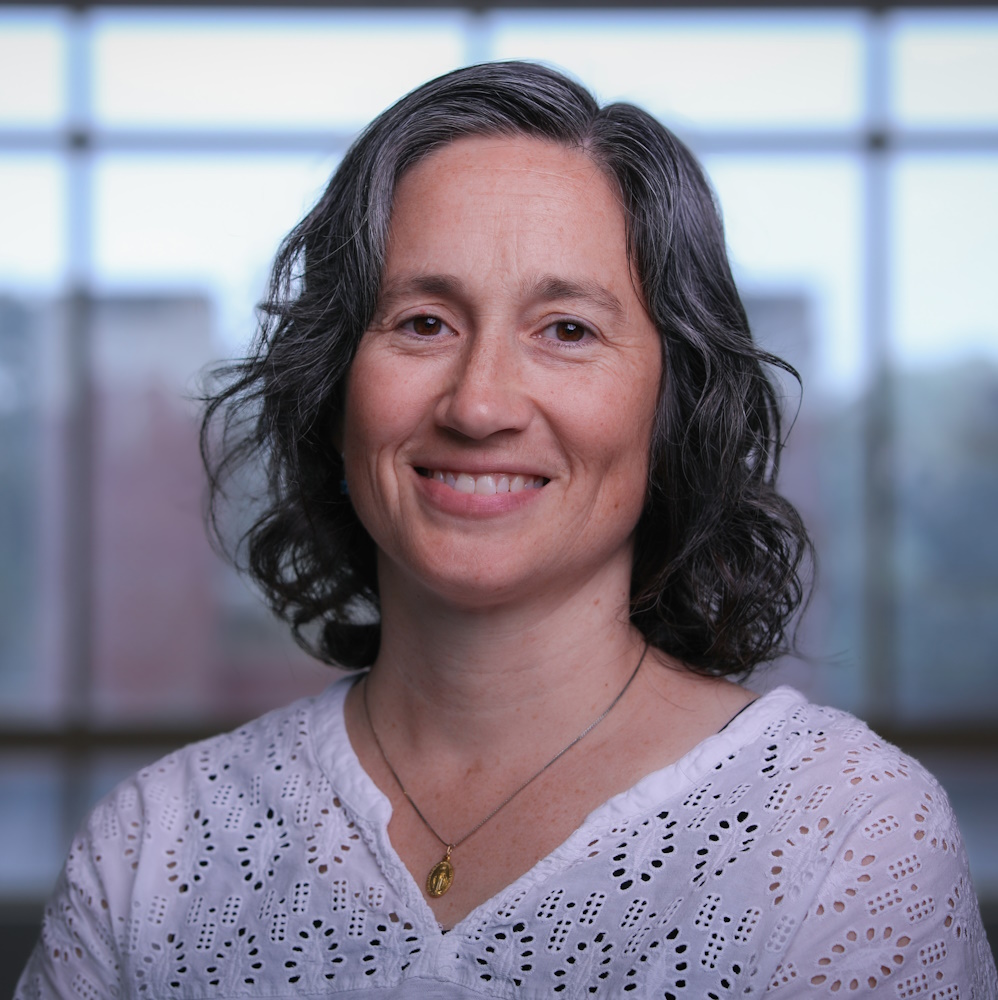
Research in our lab focuses on the study of speciation, from the earliest stages where populations start to diverge to the final stages where reproductive isolation evolves. We are also involved in accelerating resolution of the Tree of Life, through development of next-generation sequencing approaches for phylogenomics and population genomics.
- Lemmon Lab Page
- Phone: (850) 645-9170
- chorusfrog@bio.fsu.edu
- Can mentor graduate students in the Dept. of Biological Science.
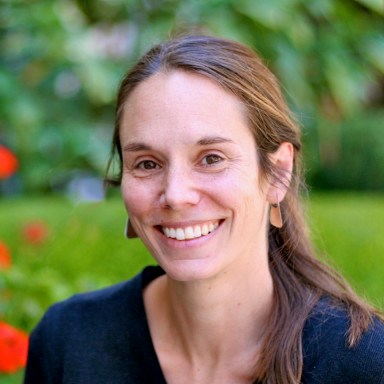
I am an applied marine ecologist focused on coastal and marine natural resource management and conservation science. Lester Lab research centers around three closely linked themes: 1) spatial approaches to marine conservation, management, and ecosystem restoration, 2) socio-ecological vulnerability of marine systems to global change, and 3) marine aquaculture and sustainable seafood systems. We apply an interdisciplinary lens to our work and utilize field surveys, data analysis and synthesis, and modeling.
- Lester Lab
- Phone: 850-644-1549
- slester@fsu.edu
- Can mentor graduate students in the Dept. of Biological Science.
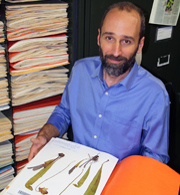
My research program involves topics within the broadly defined area of biodiversity study. I am particularly interested in (1) the interplay of ecology and evolution that determines the form and function of plant life on Earth, (2) the use of biodiversity research specimens and digital information about them to bring that interplay into sharper focus, and (3) public engagement in the research to further science and STEM literacy goals
- Departmental Faculty Page
- Phone: (850) 645-1500
- amast@fsu.edu
- Can mentor graduate students in the Dept. of Biological Science.
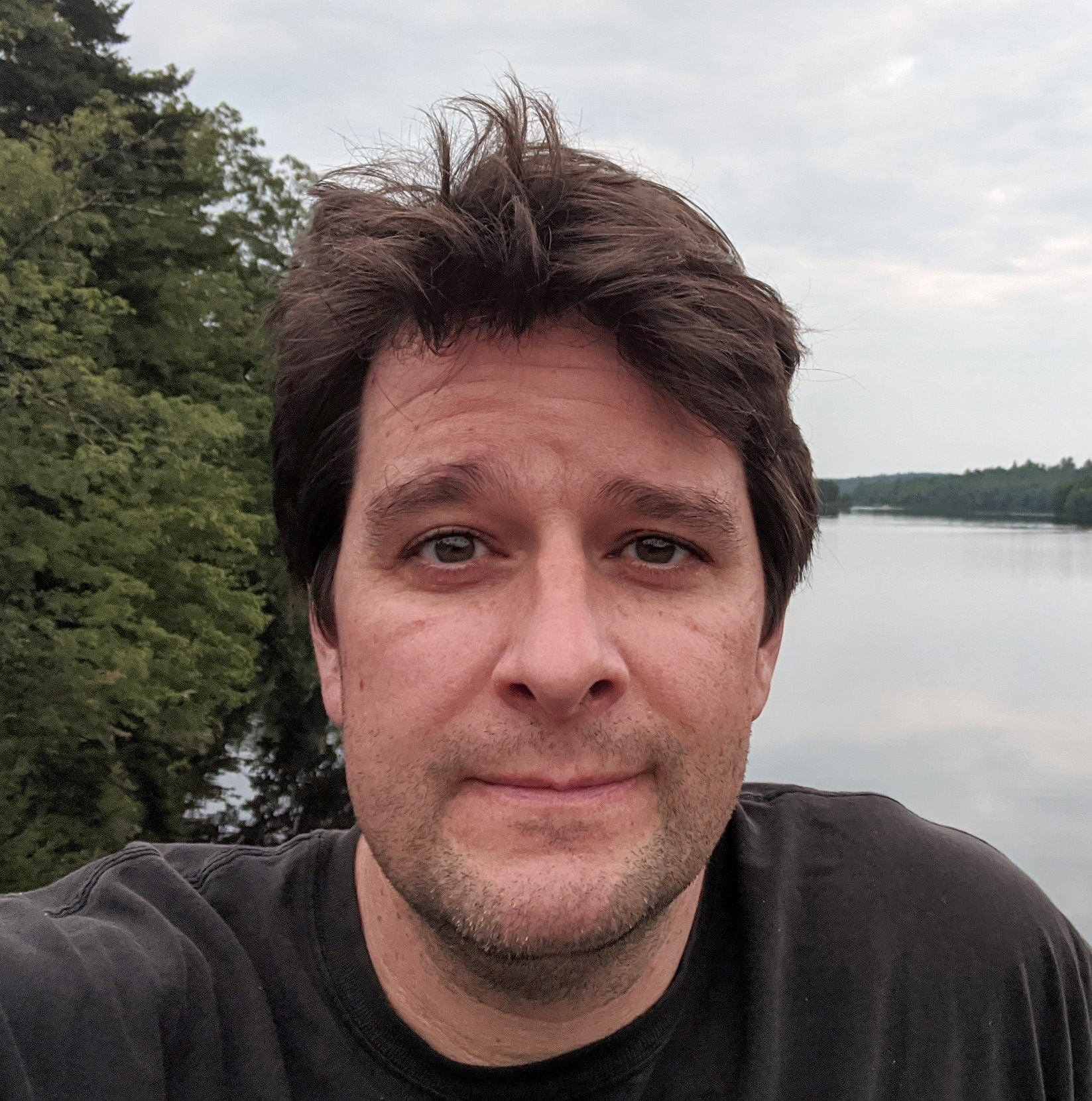
Andrew Rassweiler
Room: 4059
King Life Sciences
Mailcode: 4295
I am a quantitative marine ecologist with research interests straddling the linked fields of natural resource management and ecosystem resilience. I combine field experiments, data analysis and mathematical modeling to address basic and applied questions in temperate and tropical reef ecosystems.
- Rassweiler Lab Homepage
- Phone: (850) 644-1555
- rassweiler@bio.fsu.edu
- Can mentor graduate students in the Dept. of Biological Science.
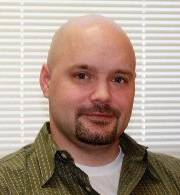
I study the genetics of adaptation, primarily in the context of the coevolution between venomous animals and their prey. My research group studies the venoms of snakes, scorpions, centipedes, and spiders, and we are interested in how the genetics of traits influence their evolutionary trajectories.
- Laboratory Home Page
- Phone: (850) 645-8812
- drokyta@bio.fsu.edu
- Can mentor graduate students in the Dept. of Biological Science.
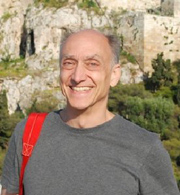
My research is focused on understanding the origin of biological diversity. I reconstruct phylogenies of highly diverse groups like rodents and bivalves and use those phylogenies to explore biogeography, morphological evolution, rates of diversification, and how patterns of correlations among traits themselves evolve,
- Laboratory Home Page
- Personal Home Page
- Phone: (850) 644-6536
- steppan@bio.fsu.edu
- Can mentor graduate students in the Dept. of Biological Science.
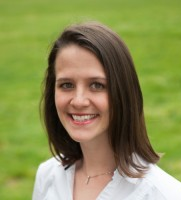
Kayla Stoy
Room: 4061
King Life Sciences
Mailcode: 4295
Our lab investigates the coevolutionary dynamics that underpin long-term mutualistic interactions using a multi-faceted approach. We evaluate the factors contributing to mutualism stability in natural populations of insects and their bacterial symbionts. We complement this work with experimental evolution in a synthetic system of mutualistic cross-feeding using Saccharomyces cerevisiae.
- Lab Webpage
- ks24bw@fsu.edu
- Can mentor graduate students in the Dept. of Biological Science.
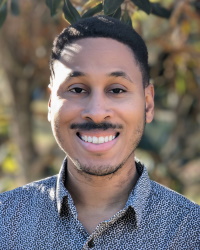
David Thoms
Biology Unit I
Mailcode: 4370
Plant roots are analogous to the animal gut as both are important sites of nutrient acquisition and microbial activity. We use the plant model system, Arabidopsis thaliana, to study the role of innate immunity in establishing a healthy root microbiome. We use a combination of NextGen sequencing, microscopy, and genetics to study the mechanisms required for distinguishing between beneficial and pathogenic bacteria in a manner that modulates bacterial growth.
- Thoms Lab Website
- dthoms@fsu.edu
- Can mentor graduate students in the Dept. of Biological Science.
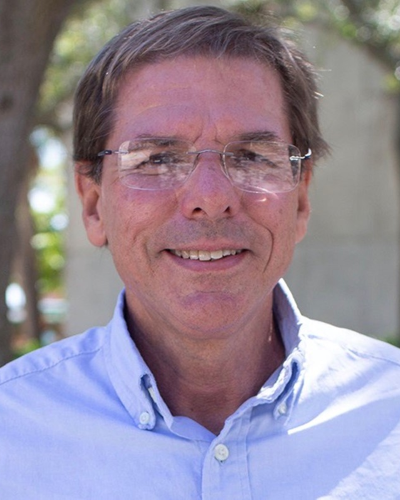
Joel Trexler
Director of the FSU Coastal and Marine Laboratory
Room: Building 462, Room 102
Coastal & Marine Laboratory
I am an ecologist interested in understanding how the environment affects organisms and they affect it. My students and I study the controls of population and community dynamics of fish and invertebrates in aquatic ecosystems, especially wetlands. We also study animal influences on their environment through engineering its structure and impacts on biogeochemical cycles. Much of my research is conducted in support of environmental management and restoration projects.
- Phone: (850) 645-3480
- jtrexler@fsu.edu
- Can mentor graduate students in the Dept. of Biological Science.
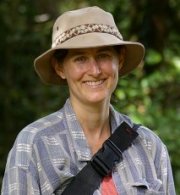
I study the ecology and evolution of plant-insect interactions, with a focus on how genotypic and phenotypic variation among individuals affects the long-term spatial and temporal dynamics of populations and communities. I also work on the effects of climate on plant and insect phenology and on the consequences of changes in phenology. I work in both natural and agricultural systems, and use a combination of greenhouse and field experiments and mathematical modeling.
- Lab web page
- Phone: (850) 644-4167
- nunderwood@bio.fsu.edu
- Can mentor graduate students in the Dept. of Biological Science.
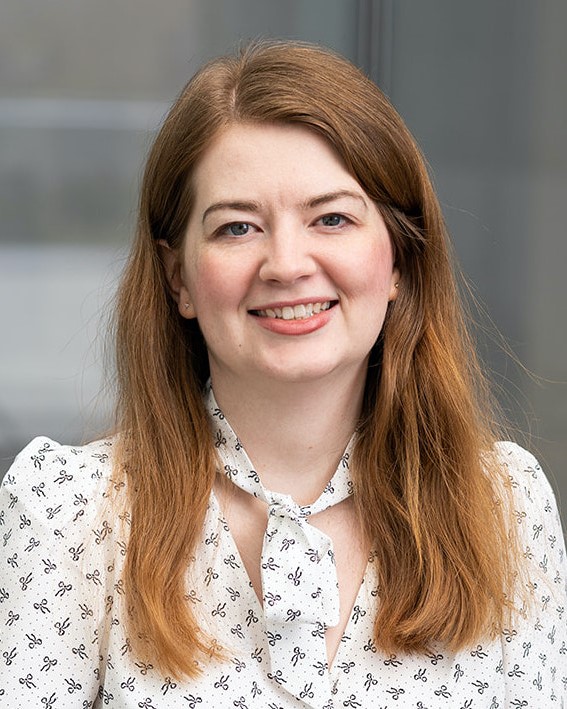
Amy Webster
Room: 3076
King Life Sciences
Mailcode: 4295
Using C. elegans as a model, we are interested in how differences in gene expression and chromatin can both cause and predict phenotypic differences across individuals, how these differences interact with genetic and environmental variation, and how heritable epigenetic effects may shape populations on short and long timescales.
- Webster Lab Website
- webster@bio.fsu.edu
- Can mentor graduate students in the Dept. of Biological Science.

Mutualisms, life history and morphological strategies, predator defenses, and biogeography of clonal marine invertebrates, especially sponges.
- Phone: (850) 644-1565
- wulff@bio.fsu.edu
- Can mentor graduate students in the Dept. of Biological Science.

